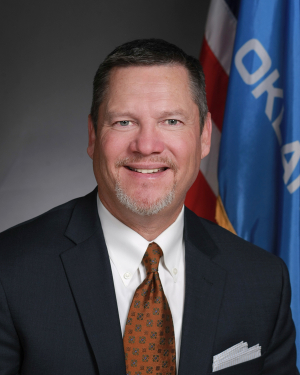With the second week of April underway, we are ten weeks into the 2019 legislative session, and quickly approaching the Thursday, April 11 deadline for Senate committees to consider legislation that was originally introduced in the House of Representatives.
I serve as vice-chair of the Senate Finance Committee, and from time to time I am called upon to chair those meetings. When I act as chair of that committee, it’s my job to make sure the meetings are conducted in an orderly way and that all Senate rules and protocol are followed throughout the presentation of bills. It allows me to draw on my previous experience as Mayor, and it’s something I’ve really enjoyed having the opportunity to do this session.
This is also National Crime Victims’ Rights Week. For many years, it seemed like criminals had all the legal rights, while the victims of crime and their loved ones were afforded few, if any, protections. That’s been changing in recent years. Last November, a state question referred to voters called Marsy’s Law was approved by voters. It gives constitutional protection to victims’ rights, making sure they are kept informed of criminal proceedings and possible releases and ensuring they have a voice at key points in those proceedings.
This session, we’re working on another important piece of legislation that is aimed at giving family members answers sooner, rather than later, in missing and unidentified persons cases.
In 1981, Francine Frost, of Tulsa, was abducted and murdered. Human remains were found in rural Muskogee County in 1983, but it was more than 30 years before they were identified as Frost’s. In 2008, Tulsa police entered DNA samples from Frost’s family into DNA databases, but the Tulsa case and the Muskogee case remained unconnected. In 2013, the Oklahoma Office of the Chief Medical Examiner entered information into NamUs, the National Missing and Unidentified Persons System. The next year, Francine’s grandson, Cory, was searching for clues on the database and details he found in the Muskogee case led him to call the medical examiner’s office. The remains were exhumed, and in 2016 they were identified as Francine’s.
Throughout the session, members of Francine’s family have lobbied for passage of House Bill 2640, “Francine’s Law.” The bill would require law enforcement, medical examiners and coroners to enter all missing and unidentified persons information into NamUs, which provides free forensic services, including forensic odontology, fingerprint examination, forensic anthropology, and DNA analyses through the UNT Center for Human Identification. Having all the information in one database can help solve these cases sooner, rather than years or even decades later.
I’m proud to support Francine’s Law and stand with Oklahomans in support of victims’ rights.
Thank you for the privilege of allowing me to be your voice in the Oklahoma Senate. Please feel free to contact my Capitol office with any questions or concerns you may have about legislation or other issues impacting our state at 405.521.5628 or at chuck.hall@oksenate.gov.




Be the first to comment on "Senate Minutes with State Senator Chuck Hall"